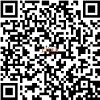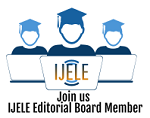*corresponding author
AbstractThrough the application of literature review and review of the higher education framework for internationalization, the present work presents a critical reflection of the challenges addressed in order for a curriculum in higher education to be internationalized and provides a practical guide regarding the required steps that need to be followed. A literature research approach is applied as a methodological approach, and the example of internationalizing a business management curriculum is used as a case for this study and the key research questions addresses what assist educational leaders and educational decision-makers to understand what is important to be considered when they plan, organize, design and implement activities for internationalizing a curriculum. The study also challenges that a more comprehensive framework is needed towards internationalization, and through reflection upon personal experience, provides practical guidance and recommendations to academics and educators on how higher education curricula can become international in context and practice.
KeywordsCurriculum; Higher education; Internationalization
|
DOIhttps://doi.org/10.31763/ijele.v2i2.110 |
Article metrics10.31763/ijele.v2i2.110 Abstract views : 3385 | PDF views : 929 |
Cite |
Full Text Download Download
|
References
[1] A. M. Sutherland, D. Edgar, and P. Duncan, "International Infusion in Practice – From Cultural Awareness to Cultural Intelligence," J. Perspect. Appl. Acad. Pract., 2015, doi: 10.14297/jpaap.v3i3.188.
[2] B. Leask, "Using Formal and Informal Curricula to Improve Interactions Between Home and International Students," J. Stud. Int. Educ., vol. 13, no. 2, pp. 205–221, Jun. 2009, doi: 10.1177/1028315308329786.
[3] J. Beelen and B. Leask, "Internationalisation at Home on the Move. Internationalisation of Higher Education. An EUA/ACA Handbook 1 (9)." Raabe Academic Publishers, Berlin, 2011, available at: Google Scholar.
[4] B. Leask, Internationalizing the curriculum. Routledge, 2015, available at: Google Books.
[5] W. Green and C. Whitsed, Critical perspectives on internationalising the curriculum in disciplines: Reflective narrative accounts from business, education and health, vol. 28. Springer, 2015, available at: Google Books.
[6] E. Egron-Polak and R. Hudson, "Internationalization of Higher Education: Growing expectations, fundamental values (executive summary)," 2014, available at: Google Scholar.
[7] P. A. McCormick and K. M. Murphy, "Splenomegaly, hypersplenism and coagulation abnormalities in liver disease," Best Pract. Res. Clin. Gastroenterol., vol. 14, no. 6, pp. 1009–1031, Dec. 2000, doi: 10.1053/bega.2000.0144.
[8] K. Koc and M. B. Turan, "The Impact of Cultural Intelligence on Social Skills among University Students.," J. Educ. Learn., vol. 7, no. 6, pp. 241–249, 2018, available at: Eric.ed.gov.
[9] M. AÇIKALIN, “Sosyal bilgiler eğitiminde yeni yaklaşımlar: Çokkültürlü ve küresel eğitim,” İlköğretim Online, vol. 9, no. 3, pp. 1226–1237, 2010, available at: Google Scholar.
[10] C. F. Alger and J. E. Harf, "Global Education: Why? For whom? About what?.," 1985, available at: Eric.ed.gov.
[11] T. F. Kirkwood, "Our Global Age Requires Global Education: Clarifying Definitional Ambiguities," Soc. Stud., vol. 92, no. 1, pp. 10–15, Jan. 2001, doi: 10.1080/00377990109603969.
[12] L. Yardley et al., "Understanding and Promoting Effective Engagement With Digital Behavior Change Interventions," Am. J. Prev. Med., vol. 51, no. 5, pp. 833–842, Nov. 2016, doi: 10.1016/j.amepre.2016.06.015.
[13] Z. Çubukçu and M. Gültekin, “İlköğretimde öğrencilere kazandırılması gereken sosyal beceriler,” Bilig, no. 37, pp. 155–174, 2006, available at: Google Scholar.
[14] Pratt, D. D. (1992). Conceptions of Teaching. Adult Education Quarterly, 42(4), 203–220, doi: 10.1177/074171369204200401.
[15] G. De Vita, "Learning Styles, Culture and Inclusive Instruction in the Multicultural Classroom: A Business and Management Perspective," Innov. Educ. Teach. Int., vol. 38, no. 2, pp. 165–174, Jan. 2001, doi: 10.1080/14703290110035437.
[16] D. A. Kolb, "Experiential Learning: Experience as The Source of Learning and Development," Prentice Hall, Inc., 1984, available at: Google Scholar.
[17] N. J. Entwistle and J. D. Wilson, "Personality, study methods and academic performance.," Univ Quart, 1970, available at: Eric.ed.gov.
[18] N. Entwistle, M. Hanley, and D. Hounsell, "Identifying distinctive approaches to studying," High. Educ., vol. 8, no. 4, pp. 365–380, Jul. 1979, doi: 10.1007%2FBF01680525.
[19] W. D. Halls, Comparative Education: Contemporary Issues and Trends. ERIC, 1990, available at: Eric.ed.gov.
[20] S. Manikutty, N. S. Anuradha, and K. Hansen, "Does culture influence learning styles in higher education?," Int. J. Learn. Chang., vol. 2, no. 1, p. 70, 2007, doi: 10.1504/IJLC.2007.014896.
[21] F. Coffield, D. Moseley, E. Hall, and K. Ecclestone, "Should we be using learning styles? What research has to say to practice," 2004, doi: hdl.voced.edu.au/10707/64981.
[22] B. Leask, "Internationalizing the Curriculum in the Disciplines—Imagining New Possibilities," J. Stud. Int. Educ., vol. 17, no. 2, pp. 103–118, May 2013, doi: 10.1177/1028315312475090.
[23] W. Green and C. Whitsed, "Reflections on an Alternative Approach to Continuing Professional Learning for Internationalization of the Curriculum Across Disciplines," J. Stud. Int. Educ., vol. 17, no. 2, pp. 148–164, May 2013, doi: 10.1177/1028315312463825.
[24] S. Rowland, The Enquiring University: n/a. McGraw-Hill Education (UK), 2006, available at: Google Scholar.
[25] P. Trowler, M. Saunders, and V. Bamber, Tribes and territories in the 21st century: Rethinking the significance of disciplines in higher education. Routledge, 2012, available at: Google Books.
[26] J. A. Mestenhauser, Reflections on the past, present, and future of internationalizing higher Education: Discovering opportunities to meet the challenges. Global Programs and Strategy Alliance at the University of Minnesota, 2011, available at: Google Scholar.
[27] June M. Tuma & J. Mark Pratt (1982) Clinical child psychology practice and training: A survey, Journal of Clinical Child Psychology, 11:1, 27-34, DOI: 10.1080/15374418209533058.
[28] L. Bremer, "Van der Wende (1995)," Int. Curric. High. Educ. Exp. Netherlands, available at: Google Scholar.
[29] J. G. Avila, "The Process of Internationalization of Latin American Higher Education," J. Stud. Int. Educ., vol. 11, no. 3–4, pp. 400–409, Sep. 2007, doi: 10.1177/1028315307303921.
[30] S. Robinson and S. Lee, "Global ethics on the ascent," in Internationalising higher Education, Routledge, 2007, pp. 27–42, available at: Google Scholar.
[31] B. Sharma and J. A. Roy, "Aspects of the internationalization of management education," J. Manag. Dev., vol. 15, no. 1, pp. 5–13, Feb. 1996, doi: 10.1108/02621719610107764.
[32] T. Heffernan, M. Morrison, P. Basu, and A. Sweeney, "Cultural differences, learning styles and transnational education," J. High. Educ. Policy Manag., vol. 32, no. 1, pp. 27–39, Jan. 2010, doi: 10.1080/13600800903440535.
[33] E. Jones and D. Killick, "Internationalisation of the curriculum," Int. High. Educ., pp. 109–119, 2007, available at: Google Scholar.
[34] A. V. Kelly, The curriculum: Theory and practice. Sage, 2009, available at: Google Scholar.
[35] B. Nilsson, "Internationalising the curriculum," Int. home A position Pap., pp. 21–27, 2000, available at: Google Scholar.
[36] R. Huang and R. Turner, "International experience, universities support and graduate employability – perceptions of Chinese international students studying in UK universities," J. Educ. Work, vol. 31, no. 2, pp. 175–189, Feb. 2018, doi: 10.1080/13639080.2018.1436751.
[37] P. Chen, X. Liu, W. Cheng, and R. Huang, "A review of using Augmented Reality in Education from 2011 to 2016," 2017, pp. 13–18, available at: Google Scholar.
[38] J. Biggs, "Teaching across and within cultures: The issue of international students," in learning and teaching in higher Education: Advancing international perspectives. Proceedings of the Higher Education Research and Development Society Conference, 1997, pp. 1–22, available at: Google Scholar.
[39] G. Elkin, J. Farnsworth, and A. Templer, "Strategy and the internationalisation of universities," Int. J. Educ. Manag., vol. 22, no. 3, pp. 239–250, Mar. 2008, doi: 10.1108/09513540810861874.
[40] D. Killick, "Internationalisation: Graduate attributes for a globalising world," in Conference paper: Higher Education Academy Annual Conference, Harrogate, July, 2008, available at: Google Scholar.
[41] G. S. Goodman, Alternatives in Education: Critical pedagogy for disaffected youth. Peter Lang Pub Incorporated, 1999, available at: Google Scholar.
[42] R. E. J. Rudzki, "Implementing internationalisation: The practical application of the fractal process model," J. Stud. Int. Educ., vol. 4, no. 2, pp. 77–90, 2000, doi: 10.1177/102831530000400208.
[43] E. Salehi‐Sangari and T. Foster, "Curriculum internationalisation," Eur. J. Mark., 1999, doi: 10.1108/03090569910274401.
[44] D. Leggott and J. Stapleford, "Internationalisation and employability," in Internationalising higher Education, Routledge, 2007, pp. 138–152, available at: Google Scholar.
[45] H. De Wit, Internationalization of higher education in the United States of America and Europe: A historical, comparative, and conceptual analysis. Greenwood Publishing Group, 2002, available at: Google Books.
[46] C. Kreber, "Learning experientially through case studies? A conceptual analysis," Teach. High. Educ., vol. 6, no. 2, pp. 217–228, 2001, doi: 10.1080/13562510120045203.
[47] N. V. N. Chism, "Developing a philosophy of teaching statement," Essays Teach. Excell., vol. 9, no. 3, pp. 1–2, 1998, available at: Google Scholar.
[48] G. Handal and P. Lauvas, "Promoting reflective teaching: Supervision in practice," Promot. reflective Teach. Superv. action. Milt. Keynes SRHE Open Univ. Educ. Enterp. Ltd., pp. 9–29, 1987, available at: Google Scholar.
[49] U. Teichler, "The changing debate on internationalisation of higher education," High. Educ., vol. 48, no. 1, pp. 5–26, 2004, doi: 10.1023/B:HIGH.0000033771.69078.41.
Refbacks
- There are currently no refbacks.
Copyright (c) 2020 Evangelia Fragouli

This work is licensed under a Creative Commons Attribution-ShareAlike 4.0 International License.

International Journal of Education and Learning
ISSN 2684-9240
Published by Association for Scientific Computing Electronics and Engineering (ASCEE)
W : http://pubs2.ascee.org/index.php/ijele
E : zalik@ascee.org

This work is licensed under a Creative Commons Attribution-ShareAlike 4.0 International License.




















